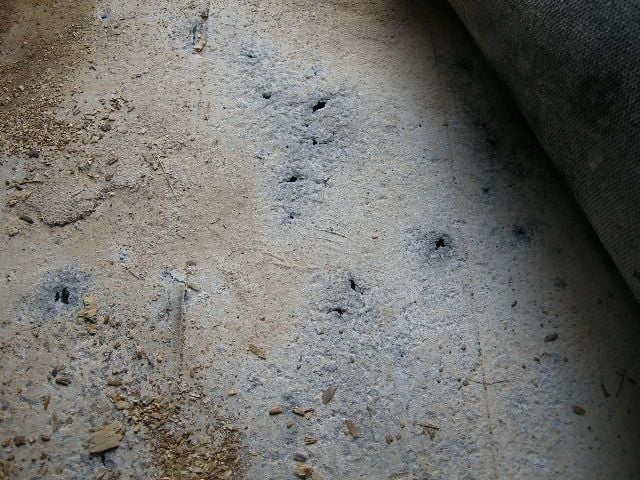A Closer Look at the Structural Supports on an Aluminum Trailer Floor
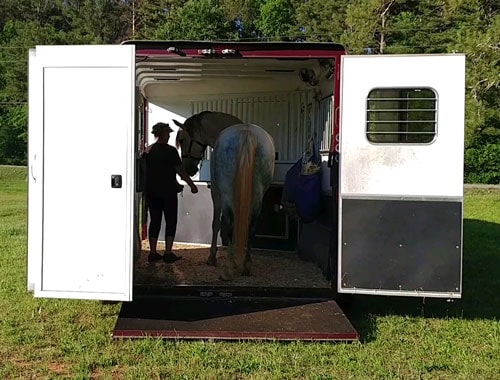 The stiffness of a surface can make a huge difference on your comfort and performance. Just think of going out for a run on hard pavement versus a grassy trail. The same thing goes for your horse. They would much prefer a freshly dragged arena with great footing instead of a hard-as-rock stone dust ring.
The stiffness of a surface can make a huge difference on your comfort and performance. Just think of going out for a run on hard pavement versus a grassy trail. The same thing goes for your horse. They would much prefer a freshly dragged arena with great footing instead of a hard-as-rock stone dust ring.
That’s why it’s important to take into account the stiffness of your horse trailer floor. In this article, we’re going to take a closer look at the structural supports in two types of aluminum horse trailer floors. We’ll talk about some advantages – and many disadvantages – of choosing this trailer type and the better options to support your horse’s joint health.
Rolled Out Aluminum Floors with I-Beam Supports
First, let’s talk about one of the most common floors on a typical aluminum horse trailer. Sheet metal floors are rolled out on top of a chassis with I-beam supports running crossways.
Since aluminum is a weaker material compared to other options, the I-beams need to be much thicker and will need to be placed closer together to support the metal flooring on top. This eliminates its flexibility resulting in a very stiff floor.
This image shows what the aluminum beams would look like under the floor. The top side of the aluminum floor is going to need rubber mats to be installed so your horse is not standing directly on the metal.
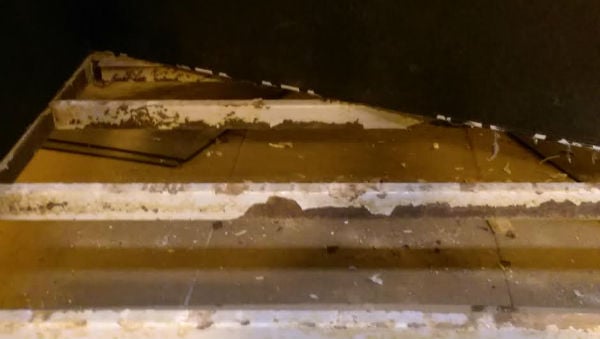
Think of the surface your horse stands on like a piece of tin-foil rolled out of its package. It is cut to fit and installed fairly quickly. The advantage here is a quick construction and lower cost for you – the buyer.
But you get what you pay for…
This type of flooring easily transfers heat and vibration up from the roadway. This causes extra fatigue for your horse’s legs. Couple that with the heat from a mill-finished aluminum roof and you have a very hot horse trailer. Your horse may be at risk of dehydration or heat exhaustion.
Another concern is any moisture (from weather or from horse urine) seeping down to the metal floor and causing corrosion. Metal floors can develop holes and weak spots over time.
Aluminum Horse Trailers with Interlocking Floor Boards
Another aluminum horse trailer option has interlocking floor boards. The salesmen will tell you that it’s like having “an I-beam every six-inches.” At first this sounds good because it sounds like a very strong and stable floor.
But there are a few things to realize here…
First, as with the rolled out aluminum floor above, I-Beams that are placed too close together create a very stiff floor. The material in the floor is not able to flex naturally with road vibration so every bump and rumble strip is transferred directly into your horse’s joints.
We spoke recently with a horse chiropractor who explained the harmful effect this can have on your horse’s back and leg joints.
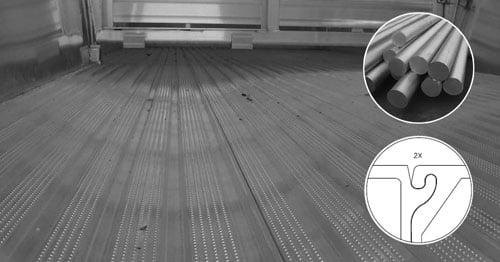
Brad Heath, owner of Double D Trailers, shared his thoughts on this type of trailer floor. “We used to build floors this way for a short time. That was until we figured out that aluminum just wasn’t a good fit for building horse trailers.”
He went on to explain, “With aluminum trailers, the majority of the pieces fit together like a jigsaw puzzle. Manufacturers have specific ‘dies’ made so that the exact shape they want is produced. The dies determine the same, and it comes out like Play-Doh on the opposite side.”
Here is a short video to show how an aluminum billet (the starting material) is installed into an aluminum extrusion press. Once the billet is pushed through the press, the shape of the die forms the aluminum board.
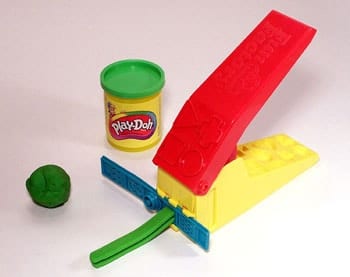
As with the rolled-out aluminum floors, these interlocking floor boards will transfer heat up from the roadway and pose a risk of corrosion when exposed to rain or horse urine.
The biggest advantage of an aluminum floor is time to construct and cost savings. But remember, “fast and cheap” isn’t always the best solution. This is one of those cases where saving time and a lower sales price just isn’t worth it.
Salesmen Won’t Mention this Hidden Problem with Aluminum Floors
Remember, an aluminum floor will corrode and develop weak spots if not properly maintained. In the case of an interlocking extruded aluminum floor, the cost of repair or replacement could be very costly… like “buy a new trailer” costly!
“It would be quite challenging and extremely expensive to repair,” Brad shared. “I think the entire trailer would have to be totaled (trashed) as the floor is the actual structural support.”
Wood or Rumber Flooring is a Better Option for Many Reasons
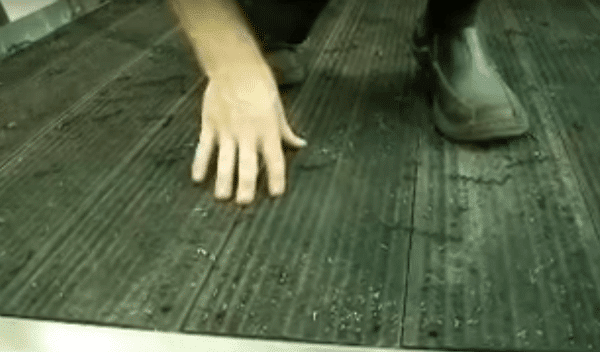
Our support beams can be placed 12 to 16-inches apart with wood or Rumber on top. The flexibility of these materials combined with the flex capabilities of the cross supports provides for a MUCH smoother ride.
The trailer floor is able to absorb those small bumps and road vibrations so your horse can stay relaxed and fresh for your event or day of fun. Also, much less noise and heat is transferred back to your horses’ feet and legs compared to an aluminum floor.
In the end, your wood or Rumber flooring material is going to be stronger, cooler, and feel more comfortable for your horse while he’s traveling. It’s like galloping on a soft grassy trail… springy and enjoyable for your horse!
If you have any questions about how aluminum floors compare to wood or Rumber floors, contact Brad today.

